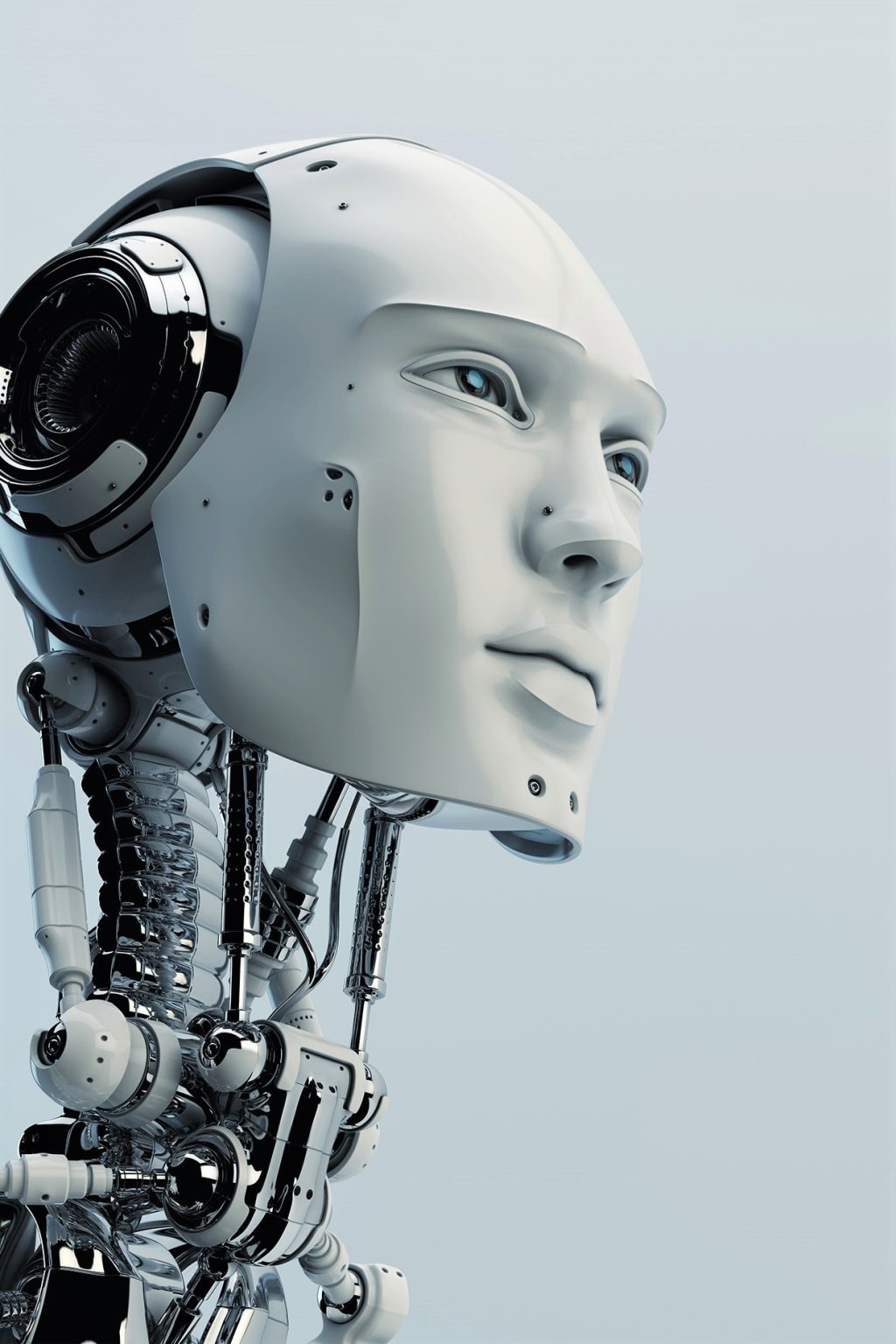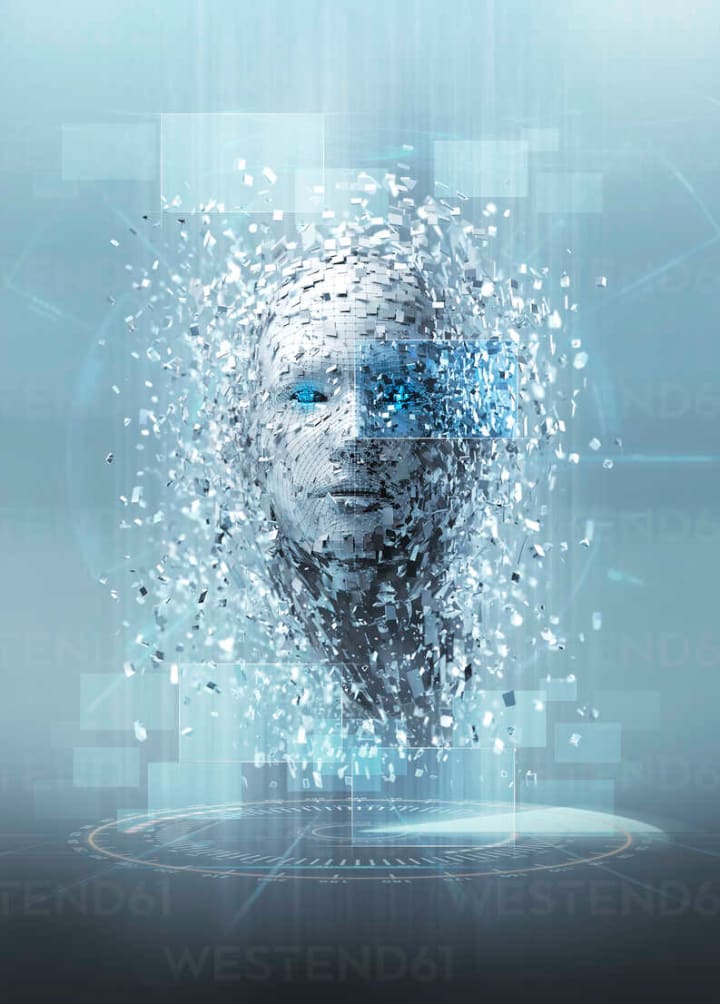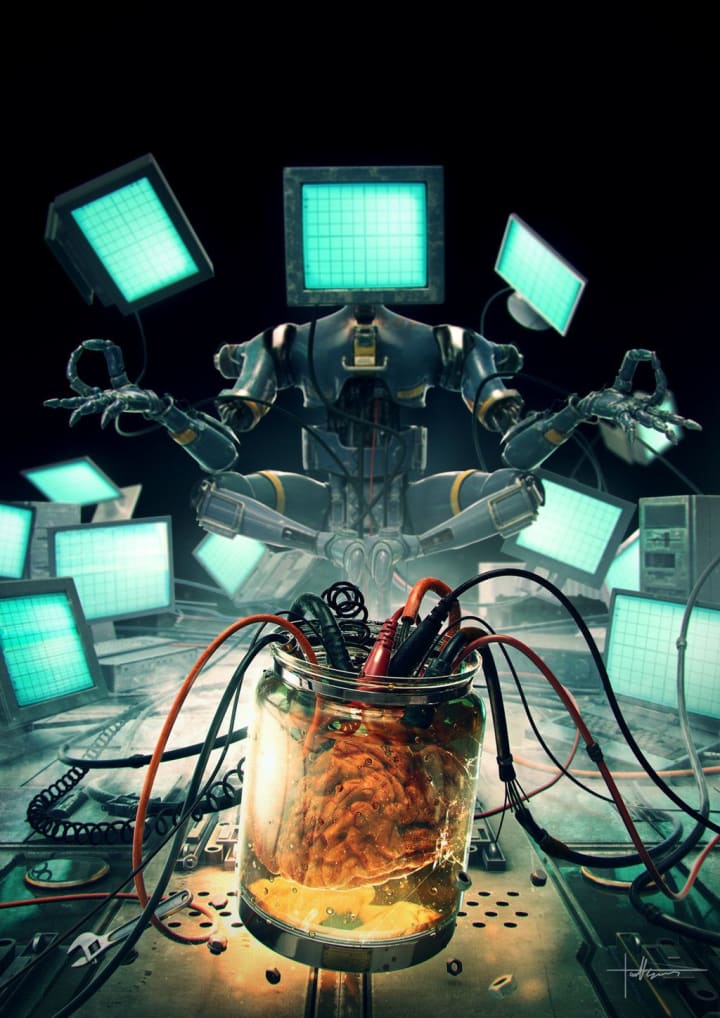Artificial intelligence • Chatbot
Artificial Intelligence (AI)

Artificial Intelligence (AI) refers to the simulation of human intelligence in machines that are designed to think and act like humans. These machines are capable of performing tasks that would normally require human intelligence, such as recognizing speech, understanding natural language, making decisions, and solving problems. AI systems can be designed to exhibit traits such as perception, reasoning, learning, and self-correction. AI has a wide range of applications, including robotics, expert systems, natural language processing, computer vision, and many others.Yes, Artificial Intelligence (AI) is expected to play a major role in shaping the future. AI has the potential to revolutionize many industries and change the way we live and work. It has already shown its impact in various fields, such as healthcare, finance, and transportation. In healthcare, AI is being used to improve patient outcomes and help medical professionals make more accurate diagnoses. In finance, AI is being used to automate financial processes and detect fraud. In transportation, AI is being used to develop self-driving cars and improve traffic flow.
However, it's important to note that AI also poses certain risks and challenges, such as job displacement and privacy concerns. As AI continues to advance, it will be important to address these issues and ensure that the technology is developed and used in a responsible and ethical manner.
APPLICATION
AI has the potential to transform many industries and has already been adopted by companies in a variety of sectors, including manufacturing, retail, and transportation. In manufacturing, AI is being used to optimize production processes, improve quality control, and reduce waste. In retail, AI is being used to personalize the shopping experience and improve inventory management. In transportation, AI is being used to improve safety, reduce congestion, and optimize routes.
Another key application of AI is in the field of robotics. AI-powered robots can be designed to perform a wide range of tasks, from manufacturing products to assisting with medical procedures. They can also be programmed to work alongside human workers, providing support and improving efficiency.
In addition to its commercial applications, AI has the potential to make a significant impact in areas such as healthcare, education, and the environment. In healthcare, AI is being used to improve patient outcomes, support medical research, and reduce costs. In education, AI is being used to personalize learning experiences and improve access to education. In the environment, AI is being used to monitor ecosystems, predict and mitigate the effects of natural disasters, and reduce waste.
As AI continues to advance, it will likely have an even greater impact on society and the world at large. It's important to consider both the potential benefits and challenges of AI and to develop and use the technology in a responsible and ethical manner.

Chatbot
A chatbot is a computer program designed to simulate conversation with human users, especially over the Internet. Chatbots can be integrated into various platforms, such as websites, messaging apps, and virtual assistants, to provide users with quick and convenient access to information and support.
Chatbots use natural language processing (NLP) and machine learning techniques to understand and respond to user input. They can be programmed to answer questions, provide information, complete tasks, and perform other functions. The goal of a chatbot is to make it easy for users to get the information they need or complete a task without having to navigate a website or use a more complex application.
ChatGPT
ChatGPT is an AI-powered chatbot developed by OpenAI. It's a language model trained on a large corpus of text data and designed to generate human-like responses to text input. ChatGPT is based on the Transformer architecture, which is a deep learning approach that's well-suited for natural language processing tasks. The model has been trained to generate text in a variety of styles and on a range of topics, allowing it to engage in conversations and answer questions on a wide range of subjects.
ChatGPT is one example of how AI is being used to develop conversational AI systems. These systems can be integrated into various applications, such as customer service chatbots, virtual assistants, and online discussion forums, to provide users with quick and convenient access to information and support.
ChatGPT is a conversational AI model developed by OpenAI. It's a deep learning model that's been trained on a large corpus of text data and designed to generate human-like responses to text input. The model is based on the Transformer architecture, which is a type of neural network that's well-suited for natural language processing tasks.
One of the key features of ChatGPT is its ability to generate text that is both coherent and contextually appropriate. This means that the model can generate responses that are relevant to the input and maintain the flow of conversation. The model has been trained on a diverse range of topics and styles, which enables it to engage in conversations on a wide range of subjects.

ChatGPT is an example of a language model, which is a type of AI system that's been trained on large amounts of text data. This training enables the model to generate text that resembles human writing, making it well-suited for conversational AI applications.
ChatGPT can be integrated into various applications, such as customer service chatbots, virtual assistants, and online discussion forums. It provides users with quick and convenient access to information and support and can be used to automate repetitive tasks and improve efficiency.
It's important to note that ChatGPT, like all AI models, has limitations and can make mistakes. The quality of the model's responses will depend on the quality of the data it was trained on, and it may generate inappropriate or incorrect responses in some cases. As AI continues to evolve, it will be important to develop and use the technology in a responsible and ethical manner.
About the Creator
Dinesh Mathivanan
I am the person that appreciates anything to do with automobiles and their inner workings. Typically, it's one can talk at length about cars without getting tired of it.
an engineer,an automotive enthusiast,
Enjoyed the story? Support the Creator.
Subscribe for free to receive all their stories in your feed. You could also pledge your support or give them a one-off tip, letting them know you appreciate their work.






Comments
There are no comments for this story
Be the first to respond and start the conversation.